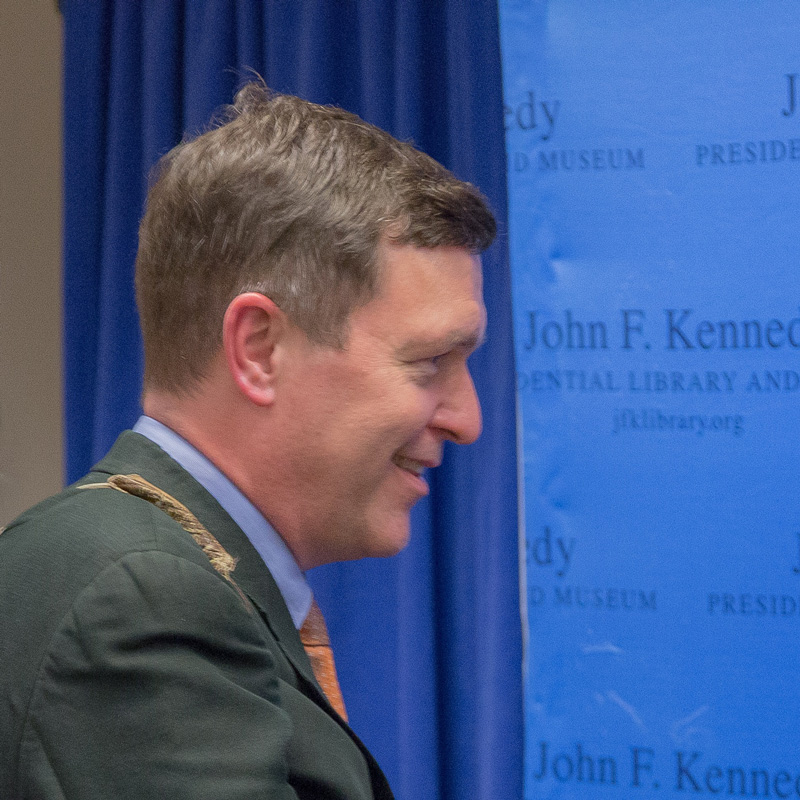Professor of Political Science
Education
Ph.D., M.A., The University of North Carolina at Chapel Hill
B.A., Marquette University
About
Comparative Politics: African politics; Latin American politics; popular social movements and informal politics; gender politics in the global south; political development and political culture; globalization and resistance; political violence, revolution and terrorism; nationalism, patriotism and state-building; politics and film.
Political Theory: democratic theory; comparative political and social theory; critical theory.
Publications
Gerard Huiskamp, Nick Dorzweiler and Eli Lovely, “Watching War Movies in Baghdad: Popular Culture and the Construction of Military Policy in the Iraq War,” Polity 48, no. 4 (October 2016), pp. 496-523.
Gerard Huiskamp, “‘Support the Troops!’ The Social and Political Currency of Patriotism in the United States,” New Political Science 33, no. 3 (September 2011), pp. 285-310.
Gerard Huiskamp and Lori Hartmann-Mahmud, “As Development Seeks to Empower: Women from Mexico and Niger Challenge Theoretical Categories,” Journal of Poverty 10, no. 4 (Winter 2006), pp. 1-26.
Gerard Huiskamp, “Minority Report on the Bush Doctrine,” New Political Science 26, no. 3 (September 2004), pp. 389-415. [Reprinted in Joseph G. Peschek, ed., The Politics of Empire: War, Terror and Hegemony (New York: Routledge, 2006), pp. 121-147.]
Gerard Huiskamp, “Negotiating Communities of Meaning in Theory and Practice: Rereading Pedagogy of the Oppressed as Direct Dialogic Encounter,” in Judith J. Slater, Stephen M. Fain and Cesar A. Rossatto, eds., The Freirean Legacy: Educating for Social Justice (New York: Peter Lang, 2002), pp. 73-94.
Gerard Huiskamp, “Identity Politics and Democratic Transitions in Latin America: (Re)organizing Women’s Strategic Interests through Community Activism,” Theory and Society 29, no. 3 (June 2000), pp. 385-424.
Gerard Huiskamp, “Structuring Political Opportunity from Below: Latin American Popular Movements Envisioning the Democratic Society,” Political Chronicle 12, no. 1 (Spring 2000), pp. 15-42.
Gerard Huiskamp and Christian Smith, “Marxism,” in Robert Wuthnow, ed., The Encyclopedia of Politics and Religion (Washington, DC: Congressional Quarterly Books, 1998), pp. 497-501.
Teaching Interests
I enjoy teaching courses in both comparative politics and political philosophy, and have taught a number of courses in each area: African Politics, Latin America Politics, Comparative Political Development, Introduction to Comparative Politics, Introduction to Political Thought, Religious Sentiment and Popular Movements, International Mediation, Inter-American Regional and Global Cooperation.
Student Projects
I’ve had the pleasure of working closely with a number of students as they pursue their senior honors thesis and other research projects. I have directed the senior theses of majors Morgan Kunz ’03 (Political Science), “American Exceptionalism on the Kyoto Protocol;” Lanae Ball ’04 (Political Science), “The Dangerous Intersection of Drugs and Terror: Counternarcotics and Counterterrorism Policy under the George W. Bush Administration;” Rose Jackson ’06 (International Relations), “Men as Partners in Women’s Empowerment: United States HIV and AIDS Policy in Southern Africa;” and Violet Knoll ’16 (Political Science and WGS), “Gender and the Military: Another Invisible War?” I’ve also had the pleasure of serving as a reader on the thesis committees of Libby Bixby ’02 (Anthropology), “Embodying Inequality in Ecuador: Children, Identity and Pedagogy;” Brian Donorfio ’04 (Computer Science and Political Science), “The Politics of ‘Free’ — Open Source Software in Government;” Jared Duval ’05 (Political Science and Economics), “Climate of Negligence: An Analysis of Climate Change and the US Political Agenda;” Tamar Palandjian ’05 (International Relations), “Civil Society and Human Rights Organizations in Armenia: Leading the Path to Democratization;” Scott Hafferkamp ’09 (American Studies), “Kennedy’s Disciples: The Portrayal of a Presidency by JFK’s Advisers;” Michael Latner ’10 (Economics and International Relations), “Magical Realism in Latin American Political Economy Continues: Mercosur’s Labor-oriented Development Agenda Evolves, But Slowly;” Eli Lovely ’10 (International Relations), “Islamists as Instruments of Change: The Inclusion of Mainstream Islamist Groups in Egypt and Turkey, a Study on Democratization;” Sally Dexter ’12 (Anthropology), “Consuming Coffee, Drinking Democracy: Fair and Direct Trade Coffee in Alternative Markets;” and Zach Marlay-Wright ’16 (International Relations), “Lost in a Crowd: An Investigation of Policies & Urban Refugee Health within Middle & Lower Income Countries.”
I’ve also had a couple of opportunities to pursue collaborative research with Wheaton students. Lanae Ball ’04 and I presented a paper together at the 2004 Northeast Political Science Association Meeting. The study, “Political Violence, Commerce and Stateness on the Margins of the International Order: A View on US Counterterrorism and Counternarcotics Policy from Below,” was a follow-up on some of the issues raised in Lanae’s thesis. And while Eli Lovely ’10 was working on his own senior thesis, under the auspices of a Wheaton Research Partnership grant, Eli and I also completed a study entitled, “War Goes to the Movies: The US Military’s Use of Film and Cinematic Mythos in the Iraq War.” We presented our findings to the 2010 Midwest Political Science Association Meeting, and published a revised version in Polity with Nick Dorzweiler.
Research Interests
I’ve published articles on the use of popular culture film by the US military during the Iraq War; the micropolitics of patriotism and protest; the doctrine of preemptive war at the center of post-9/11 US foreign policy; hegemonic and counter-hegemonic discourses; rural women’s organizing and identity formation in non-Western societies; democratization and social movement theory; and Marxism and religion. I continue to work on a larger project looking at the politics of patriotism.
